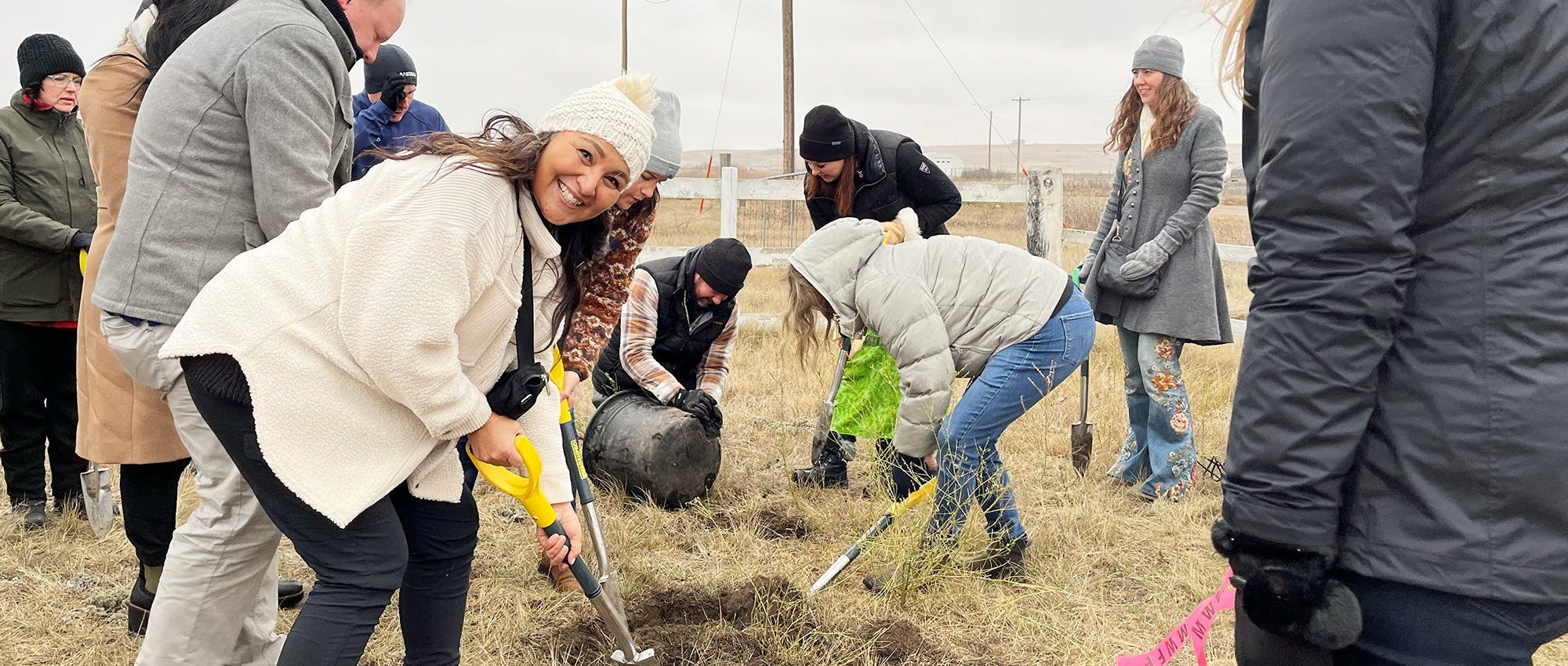Regenerative Agriculture: A Sustainable Approach for Nature Lovers and Conservationists

2 minutes
Diana Chrapko
Blog
Nov 21, 2023
Reading Time
Author
Category
Date
For those of us deeply committed to nature-based solutions, climate resilience and conservation, regenerative agriculture (RA) is an exciting frontier that combines our passions while expanding our understanding of agriculture's vital role in these endeavors.
Regenerative agriculture is a groundbreaking approach to food production with core principles tailored to protect our ecosystems. As enthusiasts in the realms of conservation and climate resilience, here's what you need to know:
1. Nurturing and Restoring Soil Health: RA is centered on rejuvenating soil health. It helps to rebuild soil's vitality by adding organic matter, nutrients, and helpful microorganisms. This supports food production and helps to capture carbon, keep water in the ground, and prevent erosion.
2. Protecting Climate and Water Resources: One of the most captivating aspects of RA is its impact on climate resilience and emissions reduction. By sequestering carbon in the soil and minimizing greenhouse gas emissions, it serves as a powerful nature-based solution that contributes to mitigating climate change and ensures that we're moving towards a sustainable and climate-resilient future.
3. Enhancing Biodiversity: RA actively encourages biodiversity by creating thriving ecosystems within farmlands. It reduces the use of pesticides and synthetic fertilizers, allowing nature to flourish. As conservation enthusiasts, this aspect aligns perfectly with our mission to protect and enhance biodiversity.
4. Circular Economy: RA embodies the principles of circular economy. It promotes resource efficiency by limiting water and input usage, preventing land degradation, and reducing waste. It makes farming more productive and profitable and minimizes its environmental impact, mirroring circular economic practices.
Incorporating regenerative agriculture into our existing knowledge base is not only about producing nutritious food but also about actively engaging in the preservation and rejuvenation of our planet. This innovative approach connects seamlessly with our goals of nature conservation and emissions reduction.
As we explore the realm of regenerative agriculture, we uncover an opportunity to not only transform agriculture practices but to also further our efforts in conservation, climate resilience, and circular economy practices. It is a bridge between our existing knowledge and the exciting world of sustainable farming.
For more information please contact:
Diana Chrapko
Program Specialist
Alberta Ecotrust Foundation
Related posts
Explore our most recent posts.



